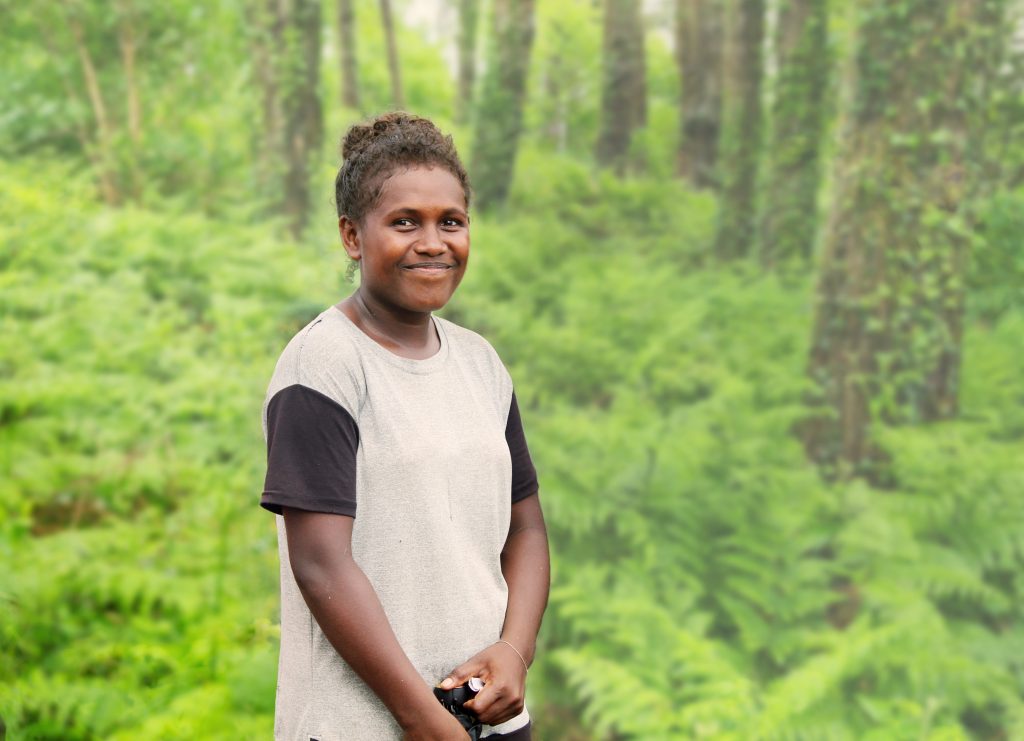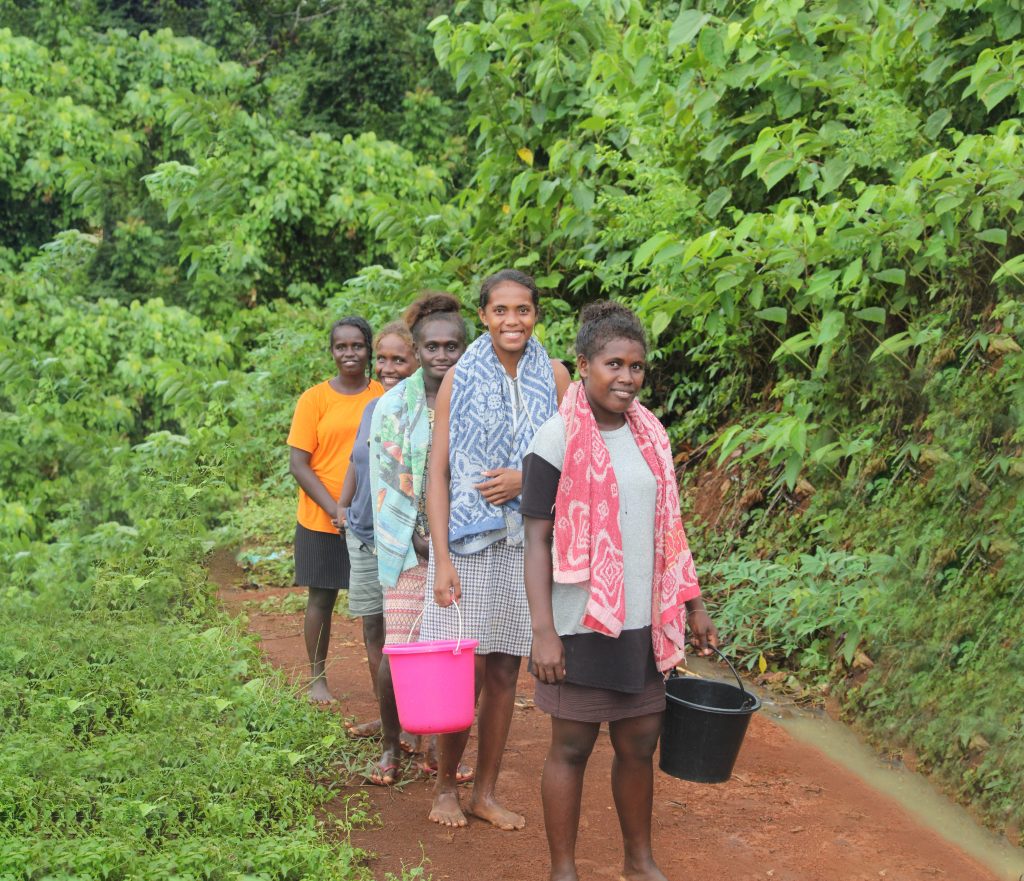Keep girls in school
23 November, 2021
“We could only go to the toilet when it was dark in the evening or at 5am in the morning before the sun rises.”
At age 15, Mary* is the head girl at the Adventist boarding school she attends in the Solomon Islands. Her favourite subject is science and health and she dreams of becoming a nurse so she can help her family and community when they are very sick.

Mary is the head girl for her boarding school in the Solomon Islands
But when Mary first started school, she longed for something else –more time to focus on her study and to be able to make it to classes on time.
“We had a lack of water,” Mary says. “Girls had to wake up every morning at 5am and walk 1.5km downhill to fetch water from a small stream for drinking, cooking, washing and to bath.”
This trip to the stream at 5am was the first of five trips the girls would take across the day. At times, the girls would spend more time collecting water than attending class.
“More time was taken just to walk to get water and we spent little time in the classroom,” she says.
When Mary arrived, the school had three water tanks – a 1,000L tank near the dormitories that was only for drinking and cooking, and two 500L tanks near the classrooms and far from the dormitories. But these tanks relied on rainwater and with limited rainfall in the area, the girls still had to collect water from the stream.

Mary and her friends collecting water from the river
Difficulties accessing water was just one barrier that kept Mary and her friends from class. Mary’s school has no electricity, just a fuel generator that operates between 6pm – 9pm. Daylight hours are the only time Mary and her friends have to do all their chores, attend school and study. Additionally, the school lacked adequate sanitation facilities and the lack of latrines presented a challenge, particularly for girls when they were menstruating.
“Having one toilet for all the girls was not enough,” Mary says. “The dry pit toilet near our dormitory is very old and no walls are around it, just bushes. The pit is there in an open air, so we could only go to the toilet when it was dark.”
For Mary and her friends, it wasn’t just a lack of privacy. It was also a lack of security.
“It is not safe for us girls, so we usually go [to the toilet] in groups of three or four,” says Mary. “We do not have any privacy, especially when we do have our period. When we have our period, we must go early to the stream before 5am, before other girls arrive.”
“For those girls who do not feel comfortable when they have their periods, they would miss out on class.”
Through the Turn on the Tap Project, ADRA supported Mary’s school by providing two 5,000L water tanks with tap stands, two toilet blocks near the classroom building (one for boys and one for girls) and hand washing facilities. These basic facilities have been life-changing for Mary and her friends, who no longer have to collect water from the stream, and who can now feel safe when going to the bathroom.
“We can now fetch water close by without having to walk kilometres to get water during critical times. Now, we can go to class on time!” says Mary. “I also help our matron to keep encouraging both boys and girls to practice hygiene in dormitories and in classroom.”
“I am happy and appreciate that ADRA sees our need,” Mary says.
You can watch Mary’s full story here.
Your gift this Christmas can provide girls like Mary with the water and sanitation facilities they need to stay safe, remain in school and received the education they need to escape poverty. Donate now at adra.org.au/christmas
* Name changed for privacy
 1800
242 372
1800
242 372